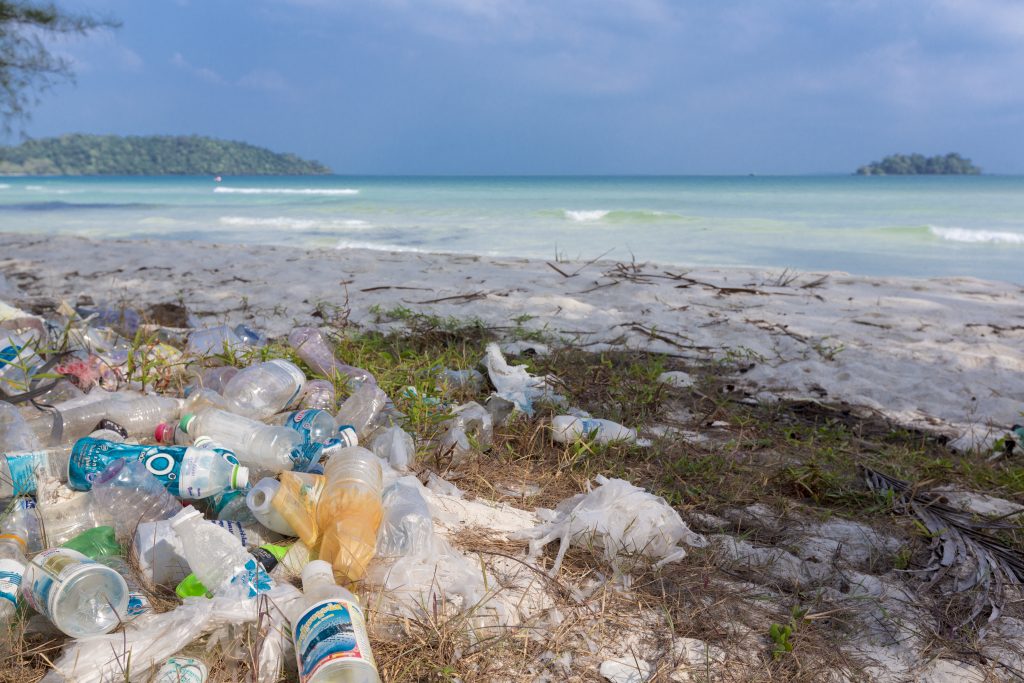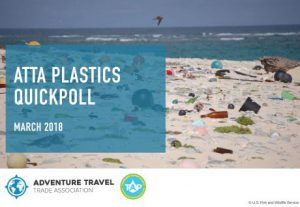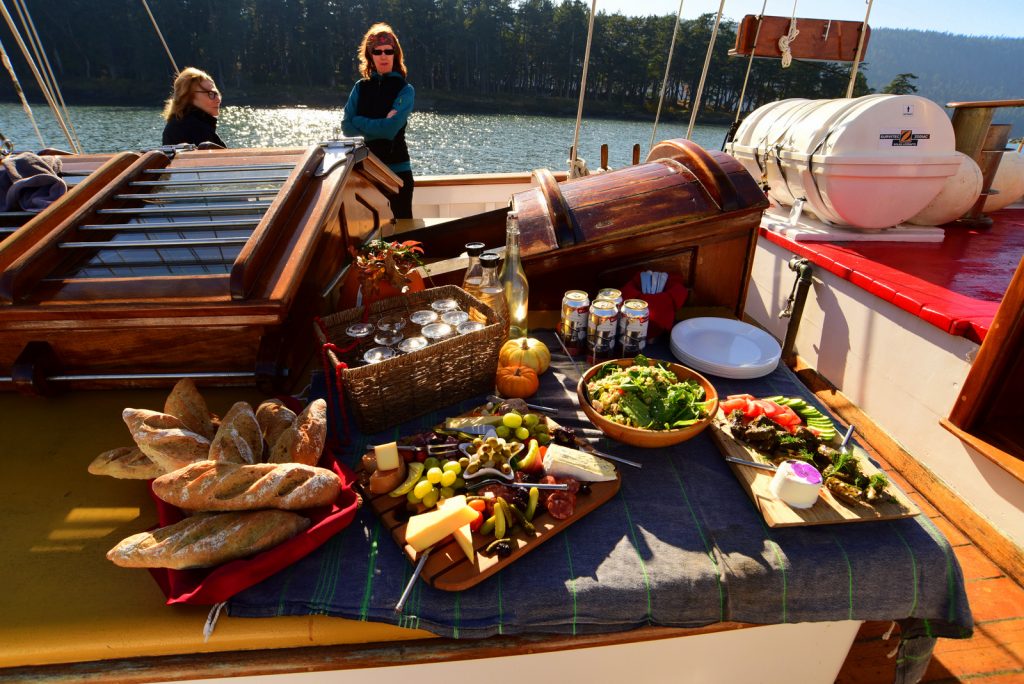From colorful straws to grocery bags, water bottles, and product packaging, the proliferation of plastic has become an overwhelming global problem. And, finally, it’s also become a household conversation and issue of social concern as an increasing number of companies and organizations talk about the repercussions of not doing something to curb plastic waste.

This year, in fact, the United Nations is using World Oceans Day on 8 June to encourage the Earth’s inhabitants to help keep the oceans clean. The Ocean Project, an organization focused on conservation education and action with an eye toward healthy oceans, spearheads a massive initiative aligned with World Oceans Day, and this year its resources and activities are focused on plastic pollution prevention. And for good reason: According to a recent National Geographic article, between 5.3 million and 14 million tons of unrecycled plastic waste ends up in the ocean each year. That’s a lot of garbage clogging the world’s waterways, destroying natural habitats, killing wildlife, and poisoning the life source all living creatures rely on.
The Adventure Travel Trade Association (ATTA) has committed to helping combat single-use plastic bottles as one of our strategic initiatives, and we are not alone in the adventure travel space in our commitment to do what we can both as an organization and as individual team members to curb plastic waste.
 The ATTA recently released a report highlighting the status of plastics use in the adventure travel industry and opportunities for companies to become involved with the global initiative.
The ATTA recently released a report highlighting the status of plastics use in the adventure travel industry and opportunities for companies to become involved with the global initiative.Since announcing our own plastics initiative, a number of ATTA members have shared their company’s case studies and success stories with eliminating plastics in their business operations. Maple Leaf Adventures, a boutique expedition cruise company, has actively engaged in eco-related policies and practices since 2001, including never using straws and investing in high-quality, reusable metal cutlery and china dishes. The company doesn’t purchase or provide plastic water bottles, and when its ships are supplied, Maple Leaf Adventures gets food boxed (not bagged) and then returns or recycles the boxes. “Our crew understand the principles of an ecotourism company, and they are empowered to make buying decisions with a triple bottom line in mind,” said Maureen Gordon, co-owner and marketing manager for the company. “It’s part of our company culture, not just our policy manual, and in addition to formal training, old crew pass it on to new crew as a matter of course.”
Peregrine Adventures has banned unnecessary single-use plastics from exclusive charters in its 2018 offerings of adventure cruising. The company has it written into all of its contracts asking suppliers not to use products like single-use straws, cups, water bottles, and plastic bags on board — an initiative that has been very positively received by guests. Exodus Travels is actively working toward providing safe drinking water without the use of single-use plastic bottles in destinations where this can be tricky at times. “We are pretty proud … that on 80 percent of our trips, clients can now travel in the knowledge that they can be single-use plastic bottle free if desired — all water is either provided, treated, safe to drink from the tap, or advice is given regarding how to treat yourself,” said Megan Devenish, responsible tourism manager for Exodus Travels.

Of course, the plastics problem extends far beyond the adventure travel industry. Luckily, a number of companies spanning a wide variety of industries are taking proactive steps to curb plastic use, and several initiatives and policies put in place at the government level have also elevated the issue’s urgency. Here are just a few that have caught our eye lately:
- In 2017, Adidas sold 1 million shoes made out of ocean plastic. Each pair of shoes reuses 11 plastic bottles. The environmental initiative is in partnership with Parley for the Oceans.
- By the end of 2023, the United Kingdom supermarket Iceland, which specializes in frozen food, has committed to eliminating plastic packaging from its own brand products.
- In April 2018, more than 40 businesses (including Tesco, P&G, Coca-Cola European Partners, and Unilever) signed the U.K. Plastics Pact, which outlines a number of goals to be met by 2025. Among these commitments are getting rid of problematic or unnecessary single-use plastic packaging; making all plastic packaging reusable, recyclable, or compostable; and ensuring 70 percent of plastic packaging is effectively recycled or composted.
- National Geographic tackled the plastics problem in its June 2018 issue. It is also actively investigating how plastic moves through watersheds and supporting solutions to reduce the flow of plastic waste into the ocean.
- The European Commission just proposed new rules for member states that include an outright ban on single-use plastics, increased labeling on certain products, and reduction of plastic material use. The plan will now go to the European Parliament and Council for consideration.
- Two apps, Refill and RefillMyBottle, are new initiatives mapping destinations in Bali and the United Kingdom where travelers can fill their reusable water bottles on the go.
ATTA members are invited to join the discussion about innovative plastics solutions in our dedicated Adventure HUB group. If your business is already active in eliminating single-use plastics, we would love to hear from you at [email protected].
This article is part of an Adventure Travel Trade Association (ATTA) initiative addressing important topics identified as critical to the protection and continued advancement of the adventure travel industry. Each initiative — eliminating plastics, women in leadership, climate action, and young leaders — has a dedicated team focused on building awareness of, advancing educational opportunities in, and creating a lasting impact on each of these areas within the adventure travel industry. We invite you to visit the ATTA’s initiatives page where you can access reports, read the latest news, participate in active projects, and join conversations within the membership community.
